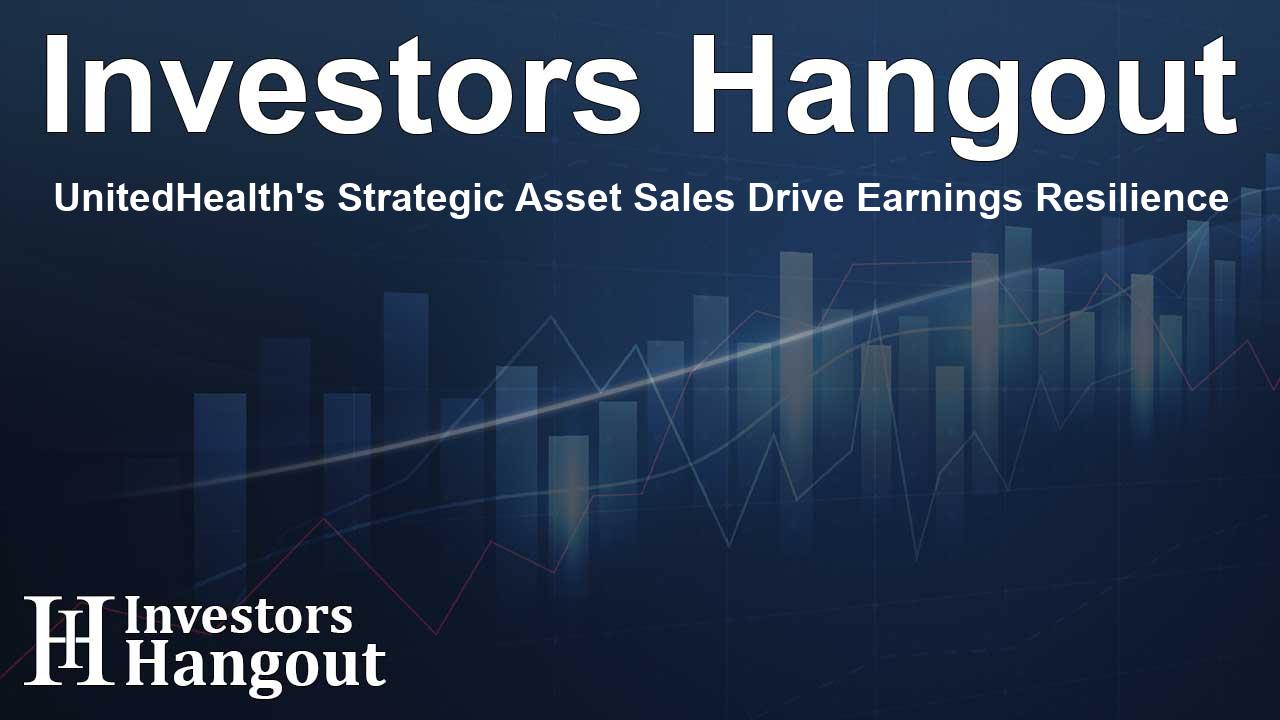UnitedHealth's Strategic Asset Sales Drive Earnings Resilience

UnitedHealth Group Inc's Earnings Streak Persisting
For nearly 15 years, UnitedHealth Group Inc (NYSE: UNH) has demonstrated an unwavering ability to exceed analysts' expectations for quarterly earnings. Throughout this impressive timeline, the company has navigated various market challenges and shifting economic conditions, showcasing its operational resilience.
Mixed Results Amid Rising Challenges
Despite this strong track record, the company faced significant pressure in the fourth quarter of a recent reporting period. UnitedHealth's earnings report revealed mixed results as rising medical costs began to impact their profitability. This situation continued into the early months of the subsequent year, where earnings consequently fell short of projected expectations.
The Role of Strategic Asset Sales
To bolster its financial performance and maintain its coveted earnings streak, UnitedHealth made a strategic decision to undertake asset sales. Reports indicate that these transactions were crucial in helping the company achieve its earnings objectives amidst rising costs in the health insurance sector. In fact, it was through these well-timed sales that UnitedHealth managed to generate a remarkable $3.3 billion in profit.
Key Transactions with Private Equity Firms
Among the noteworthy transactions, UnitedHealth sold stakes in specific business units to renowned private equity firms, including KKR & Co. Inc (NYSE: KKR) and Warburg Pincus. These sales raised eyebrows among market analysts, with many calling their impact on the company's earnings both unusual and potentially misleading. However, they undeniably played a vital role in adding temporary boosts to UnitedHealth's earnings.
Concerns Over Temporary Gains
Many observers have voiced concerns regarding the implications of these asset sales. Some transactions were designed with provisions requiring UnitedHealth to repurchase stakes at elevated prices in the future. This has raised questions regarding the sustainability of the gains derived from these moves. Critics argue that such practices highlight a focus on short-term performance over long-term stability.
Selective Financial Reporting
An article discussing the nuances of UnitedHealth's financial practices pointed out that the company included profits from these sales in its operating income while omitting substantial losses from its Brazilian operations. Such selective accounting practices have led to speculation about their potential to distort the overall picture of UnitedHealth's performance.
Current Performance and Future Outlook
As UnitedHealth strides into the future, it is important to note that its operational strategy needs ongoing adaptation in the face of rising costs. The healthcare giant cited significant pressures related to increasing Medicare Advantage costs and underperformed in early earnings reports. This has compelled the company to revise its outlook for future performance.
The Competitive Environment
The repercussions of industry trends have also reverberated through competing companies in the health insurance sector, such as Centene Corp (NYSE: CNC). Centene withdrew its guidance for 2025 after reviewing industry data, revealing broader concerns that could impact the market landscape going forward. This competitive backdrop emphasizes the importance of robust financial strategies for maintaining growth.
Anticipated Earnings Report
The company's financial performance is eagerly awaited, particularly with the upcoming release of its next quarterly report. Analysts are projecting a significant outcome, with estimates reflecting adjusted earnings of $4.95 per share on anticipated sales of $111.69 billion. The findings from this report could provide insight into UnitedHealth's capacity to overcome current industry challenges and remain a lucrative investment option.
Conclusion
As UnitedHealth Group Inc navigates this complex landscape of rising costs and competitive pressures, its strategic asset sales will likely remain a focal point of discussion among investors and analysts alike. These decisions showcase a calculated effort to balance immediate earnings with long-term operational health. How they fare in upcoming financial disclosures will be crucial in shaping investor sentiment and market performance.
Frequently Asked Questions
1. What led to UnitedHealth's earnings falling short?
The company cited rising medical costs as a key factor impacting its earnings during the fourth quarter and into the subsequent fiscal periods.
2. How much did UnitedHealth profit from its asset sales?
UnitedHealth managed to generate approximately $3.3 billion from the sale of business unit stakes to private equity firms.
3. What are the implications of the asset sales for UnitedHealth’s future?
The strategic asset sales have provided temporary earnings boosts, but they also raise questions about long-term performance sustainability.
4. Who are the private equity firms involved in asset sales?
UnitedHealth sold stakes to notable firms including KKR & Co. Inc and Warburg Pincus.
5. What future developments should investors watch for?
Investors should closely monitor the company's quarterly earnings reports and strategic decisions regarding expenditures and asset management.
About The Author
Contact Thomas Cooper privately here. Or send an email with ATTN: Thomas Cooper as the subject to contact@investorshangout.com.
About Investors Hangout
Investors Hangout is a leading online stock forum for financial discussion and learning, offering a wide range of free tools and resources. It draws in traders of all levels, who exchange market knowledge, investigate trading tactics, and keep an eye on industry developments in real time. Featuring financial articles, stock message boards, quotes, charts, company profiles, and live news updates. Through cooperative learning and a wealth of informational resources, it helps users from novices creating their first portfolios to experts honing their techniques. Join Investors Hangout today: https://investorshangout.com/
The content of this article is based on factual, publicly available information and does not represent legal, financial, or investment advice. Investors Hangout does not offer financial advice, and the author is not a licensed financial advisor. Consult a qualified advisor before making any financial or investment decisions based on this article. This article should not be considered advice to purchase, sell, or hold any securities or other investments. If any of the material provided here is inaccurate, please contact us for corrections.
